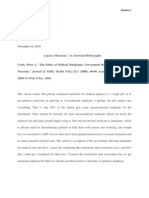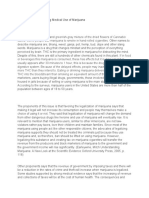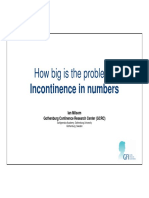0% found this document useful (0 votes)
792 views4 pagesCritical Analysis of Browser IQ Study
1) The document analyzes claims made in Scenario C that using Internet Explorer causes cognitive decline.
2) It argues that a correlation between two variables does not prove causation, and alternative explanations for the correlation were not ruled out.
3) Extraordinary claims require strong evidence, which was not provided, and the author uses the word "proof" when evidence is more accurate.
Uploaded by
Betty WangCopyright
© © All Rights Reserved
We take content rights seriously. If you suspect this is your content, claim it here.
Available Formats
Download as DOCX, PDF, TXT or read online on Scribd
0% found this document useful (0 votes)
792 views4 pagesCritical Analysis of Browser IQ Study
1) The document analyzes claims made in Scenario C that using Internet Explorer causes cognitive decline.
2) It argues that a correlation between two variables does not prove causation, and alternative explanations for the correlation were not ruled out.
3) Extraordinary claims require strong evidence, which was not provided, and the author uses the word "proof" when evidence is more accurate.
Uploaded by
Betty WangCopyright
© © All Rights Reserved
We take content rights seriously. If you suspect this is your content, claim it here.
Available Formats
Download as DOCX, PDF, TXT or read online on Scribd
/ 4






























































































